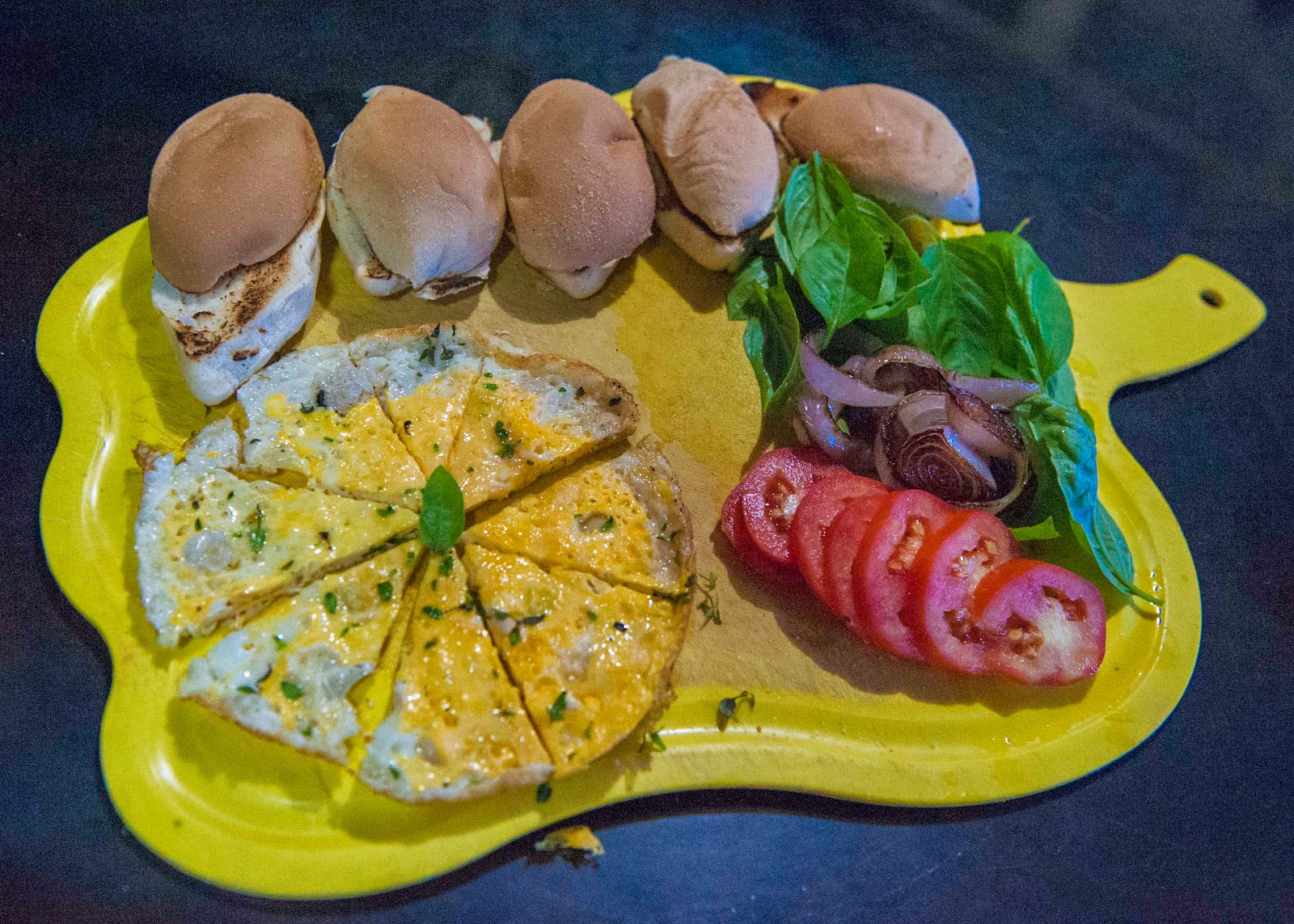Living close to the market has it's advantages.
This was our dinner tonight - egg with oregano, basil, tomato, grilled onions, and bread. We purchased all this at the market next to our house for 11 pesos, or 1 peso less than the price of a Mountain Dew.
The municipality where Lauren and I live is in the heart of the agriculturally diverse region of Panay Island. The land here is fertile, the people here are knowledgable of their trade and there is fresh water almost year round. The problem lies in that a large percentage of this food spoils and rots before it is sold. These are solely my thoughts on why this happens and do not reflect the views of the Peace Corps or any associated organization I work with.
The local community buys pre-packaged snack foods like chips, very high sugar content drinks and even higher sugar content desserts like fried donuts rolled in sugar. Calorie wise, these are acceptable foods for the men, women, and children who peddle bike cabs, work in the sugar cane plantations, rice fields and fishing boats. They need all the calories they can get. However, nutrition wise there is a huge crisis. These workers and their whole family typically eat one meal a day consisting of mainly rice with a 3 oz. piece of meat. They typically eat very little vegetables and almost never eat raw vegetables. Serving a raw veggie receives the same reaction here as serving raw chicken in the States. Given an increased budget, people tend to purchase in order of importance; rice, meat, snacks, vegetables. Children eating in these conditions do not focus in school due to malnourishment and often just sit and stare off into the distance. Now imagine putting the underweight working children with the overweight overly hyper sugar-high children who snack constantly.
The food rots because there is no local demand. What ever demand there is, it's mitigated by the lack of income and desires of the local client base. Why don't they just sell it to a further region? There are many steps to take before this is feasible. Number one having the knowledge of how to go about this. We are working with the communities to teach them what opportunities lie outside of there known world (which is usually no further than their municipality they grew up in). Number two is start up capital. We are also teaching savings programs to help families gather the capital to expand. Finally they have to possess the ability to repeat these practices, adapt, and anticipate changes. Principles that developed countries business persons take for granted. These concepts haven't made it around the world yet. Continuing education is key here.
I thinks it is important to point out that there are many Filipinos I have met who understand nutrition and struggle to teach those around them better eating habits. As with all social issues here, there are Filipino people doing the work very well, they're just overwhelmed.

No comments:
Post a Comment